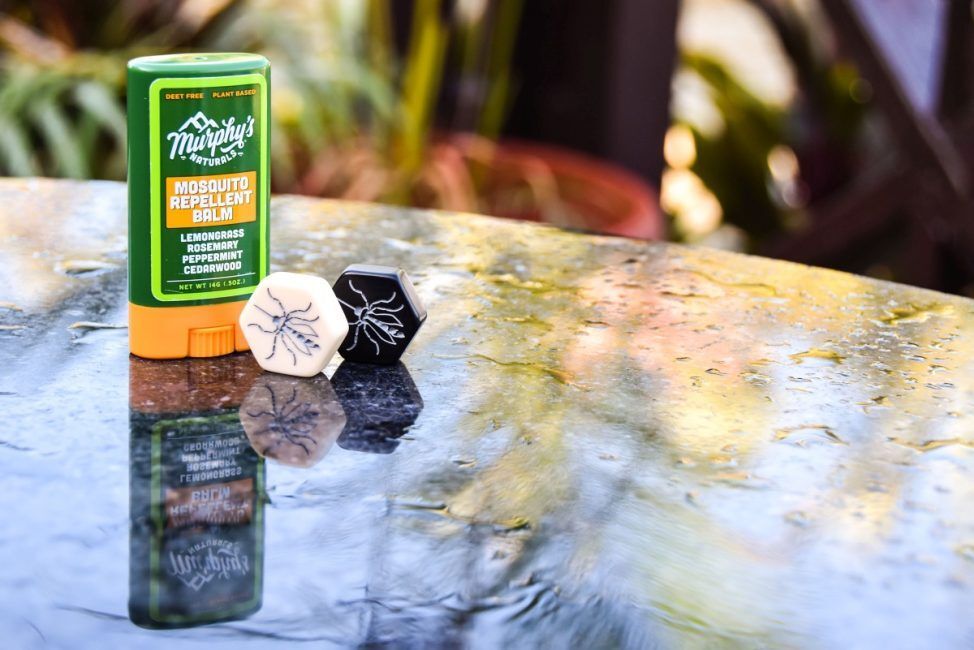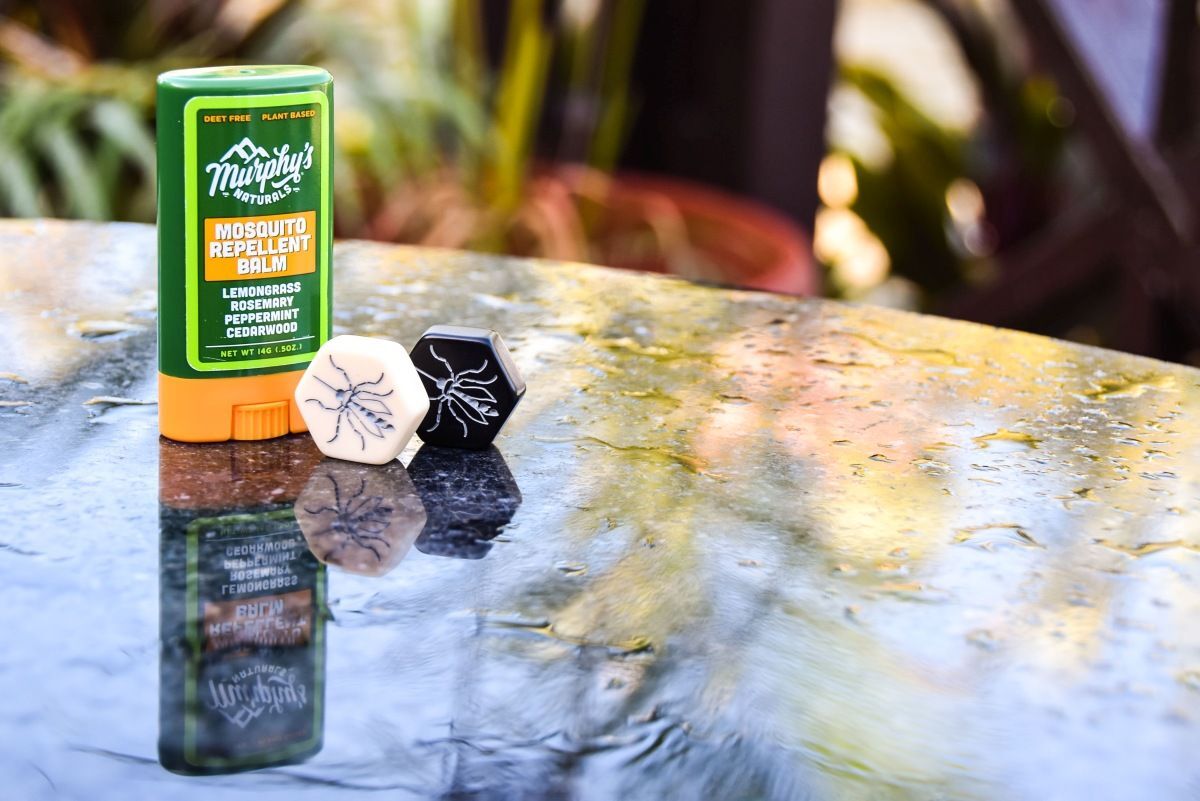Are There Mosquitoes in Tonga?
Waking up to itchy red bites on your legs is the downside of a tropical getaway. While mosquitoes are present in Tonga, they are rarely in abundance unless you’re in the forest or by stagnant water. Plus, Tonga is free from major mosquito-transmitted diseases like yellow fever and malaria. However, while not as serious, dengue fever and chikungunya, have historically been present in Tonga, so it’s always worth trying to avoid mosquito bites whenever possible! We’ll go through some tips for avoiding mosquito bites in Tonga in the list below.
For more information on health and safety in Tonga, see Tonga Safety Tips: Is it Safe to Travel to Tonga?
1. Protect Yourself with Mosquito Repellents
Sprays, creams, soaps, bracelets, even stickers, wipes and roll-on gels, natural mosquito repellents come in many interesting forms! Just check out the 10 Best Natural Insect Repellents for Tonga for ideas! Natural ingredients like lemon, eucalyptus, geranium oil, vanilla bean extract, cedar oil, rosemary oil, lemongrass oil and more are all effective natural ingredients to deter mosquitos. What’s more, they are free from DEET which is otherwise toxic to the skin especially when mixed with sunscreens, moisturisers and other skin products.
2. Wear Long-Sleeved Clothing
The science is pretty easy on this one: wear a long-sleeve layer and without exposed skin, you won’t be bitten. This is not really a high-tech solution but it works wonders. In fact, some clothing brands are starting to design clothing with insect-repellent technology integrated into the fabric. For example, ExOfficio offers full spectrum insect protection from mosquitoes, ants, ticks and even flies!
3. Make Sure Your Accommodation Has Mosquito Nets and/or Fly Screens
Most guesthouses and resorts offer mosquito nets and/or insect screens on the windows in Tonga, but there are a few of the budget options which don’t. Make sure you check whether your accommodation has these options before booking. If you’re staying somewhere where you suspect there are no mosquito nets available, bring your own travel mosquito net. Check out more things to pack in our Tonga Packing List.
4. Stay in Urban Areas
While not exactly an ideal solution when wanting to explore the islands of Tonga, urban areas tend to experience a lot fewer mosquitos than areas with vegetation. This only really applies to the town centres of Nuku’alofa on Tongatapu and Neiafu in Vava’u.
5. Avoid Going Out Just After the Rain
Rainfall is when mosquitos are at their most active. To help decrease your chances of being bitten, consider doing something indoors when it’s raining and/or just after the rain. Alternatively, get out on the ocean with some kayaking or snorkelling where mosquitos are far less present around moving water. Check out other rainy day activities in our 15 Things to Do in Tonga on a Rainy Day.
6. Avoid the Wet Season
For the reasons stated above, mosquitos are a lot more active in the wet season. The wet season in Tonga is between November and April/May (see What is the Weather Like in Tonga?) and is when you will find the most mosquito activity. While we usually recommend visiting Tonga in its quietest season, if you really want to avoid mosquitos, the wet season is best avoided.
7. Stay on Tongatapu
With the idea of staying away from the rain, another way you can reduce your rainy days is by staying in Tonga’s driest climate. Tongatapu is the island group with the driest climate, receiving approximately 1,600 mm (63 in) of rain a year compared to Vava’u which receives around 2,100 m (83 in) a year! However, there are months of the year when Tongatapu does tend to experience more rainfall than Vava’u, so check out our Weather & Climate articles to see how much precipitation is typically experienced each month.
8. Don’t Stay by Stagnant Ponds or Puddles
Yes, keeping on with the water theme, mosquitoes are particularly active around still pools of water. Swimming pools and by the sea are usually Ok where water is moving, but stagnant ponds and puddles are typically where mosquitos live. So keep your long conversations or day bed away from pools of water.
9. Take Vitamin B
Seafood, eggs, bananas and potatoes are all rich in Vitamin B which, with enough in your bloodstream, does not attract mosquitoes… Or at least that is what the local tales tell. But since the tip is passed from generation to generation, why not jump on the bandwagon? If you feel like a boost, start taking Vitamin B supplements a month before your trip. Of course, ask your doctor in case of doubt. For more pills to pop, check out the What Medication to Pack in Your First Aid Kit for Tongaa.
10. Stay Inside at Dusk and Dawn
While mosquitoes can bite at any time of the day, the prime feeding time and frenzy of activity are during dusk and dawn. During these times, it’s best to stay indoors if you want to avoid mosquito bites. Maybe opt to have your breakfast and evening meals inside.
How to Treat Mosquito Bites
If you still manage to get bitten by mosquitos, then a few remedies to fight the itch include:
- Take Antihistamine – The main purpose of taking antihistamines before or after being bitten by a mosquito is to remedy allergic reactions. They also help prevent or soothe itching. What’s more, antihistamine is even known to help prevent getting bitten in the first place! However, if you have any doubts about taking antihistamine tablets, it’s always best to consult with your doctor first.
- Apply Antiseptic Cream – When thinking about what to pack in your first aid kit for Tonga, we suggest packing a good antiseptic cream. It is particularly helpful to disinfect and soothe mosquito bites. Keeping on top of your bites is the best way to cope with mosquitoes if you start getting bitten.
- Use a Mosquito Bite-Soothing Gadget – Commonly known as a “Zapit” device, these mosquito-soothing devices are nifty little gadgets to help reduce the urge to scratch your itchy mosquito bites. Just hold the device over your skin and press the button to release a quick burst of electricity on the affected area. Some devices also allow you to adjust the strength of the zap to make it suitable for kids. Check out popular Zapit devices like Bite Helper.
- Apply Ice – Histamines, which cause the itchiness associated with mosquito bites, dilate blood vessels filling the area bitten with excess blood. The cold, however, can help constrict blood vessels and make the area feel a lot less itchy. So put some ice or an ice pack on your mosquito bite.
Finally, Get Your Vaccinations Done
While mosquito-spread diseases are not common in Tonga and chikungunya and dengue fever can’t be prevented with vaccines, we feel that this is still a good place to remind you of vaccines that are recommended for Tonga, including vaccines for measles, Hepatitis A and typhoid. Learn more on the subject in our guide, Do You Need Vaccines to Travel to Tonga?
More About Staying Healthy in Tonga
That’s it for our ways to avoid mosquito bites in Tonga. Nevertheless, we still have plenty of tips to keep yourself healthy while exploring Tonga. Check out these tips:
- 10 Best Insect Repellents for Tonga
- 10 Best (& Reef-Safe) Sunscreens for Tonga
- Is the Water Safe to Drink in Tonga?
Finally, if there’s anything we’ve missed, you’re likely to find it in Tonga Safety Tips: Is it Safe to Travel to Tonga?
Author
Robin (Lopini) C.
This article was reviewed and published by Robin, the co-founder of Tonga Pocket Guide. He has lived, worked and travelled across 16 different countries before settling in the South Pacific, so he knows a thing or two about planning the perfect trip in this corner of the world. Robin works and consults regularly with the Ministry of Tourism of Tonga. Robin is also the co-founder of several other South Pacific travel guides and is a regular host of webinars with the South Pacific Tourism Organisation.


